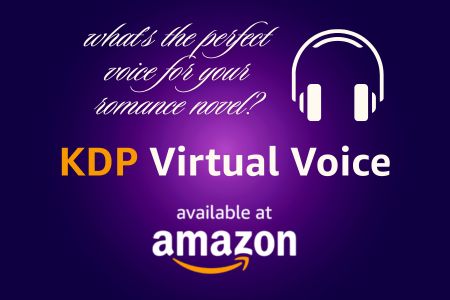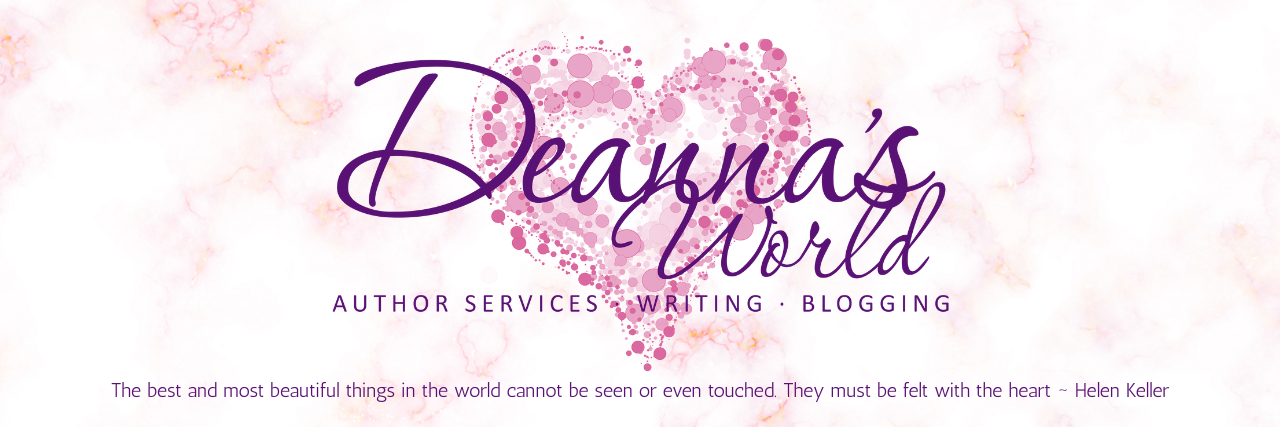
We kicked off this series by diving into the exciting world of audiobooks – a world that's booming, especially for us romance authors and readers. We also introduced the new kid on the block, AI narration, and the siren song of "free" audio offered by platforms like KDP Virtual Voice. But the question that lingered, the one that's probably been buzzing in your mind, is all about quality. Can a computer really capture the passion, the heartbreak, the sheer feeling of a romance novel?

That's what we're unpacking today. We're going to compare human narration and AI narration head-to-head, exploring the crucial differences and, most importantly, asking: do those differences really matter when it comes to romance? Because romance isn't just about what happens; it's about how it feels. It's about that delicious connection, the slow burn, the stolen glances… Can an algorithm truly deliver that kind of magic?

The Human Touch: Bringing Stories to Life
Let's start with what we know and love: human narration. A truly skilled narrator doesn't just read the words on the page; they become the story. It's a performance, a transformation. They use their voice as an instrument, modulating their tone, pitch, and pace to reflect every shift in emotion and action. A secret shared becomes a hushed whisper, an argument erupts in a shout, and fear trembles in the voice.
It's not just about volume, though. A great narrator creates distinct voices for each character, making it effortless to follow the dialogue. Imagine your gruff, alpha hero – he needs a voice that's distinct from the sassy, independent heroine, and different again from the witty best friend. This character differentiation is crucial for immersing the listener in the story.
And then there's the heart of it all: emotional nuance. Romance thrives on the subtle shades of feeling – the longing hidden in a sigh, the hesitation before a confession, the catch in the throat when love finally breaks through. A human narrator understands these subtleties; they feel them, and they convey them through their voice. They master pacing and rhythm, knowing instinctively when to rush forward during a thrilling chase and when to slow down, to linger, on a tender moment.
Ultimately, a human narrator brings interpretation and artistry to the story. They don't just relay the words; they add layers of meaning, understanding the subtext, the unspoken desires, the hidden vulnerabilities. They show you the story through their voice, becoming a conduit for the author's vision. It's an art form, honed over years of practice.

The Narrator-Reader Connection: More Than Just a Voice
Beyond the technical skills, there's another, often overlooked, aspect of human narration: the connection readers develop with specific narrators. Many readers actively seek out audiobooks narrated by their favorites. Narrators like Sebastian York, Thomas Locklear, and Jeffrey Kafer have built dedicated followings, and their fans will often choose an audiobook simply because they are performing it.
This creates a parasocial relationship – a sense of familiarity and trust between the listener and the narrator. Readers come to associate certain voices with specific genres, characters, or even emotional experiences. This connection adds another layer of enjoyment to the audiobook, something that AI, in its current form, cannot replicate. As one reader put it, "For me, the narrator is the story. I'll follow Andi Arndt to any book they narrate!" Another shared, "I tried an AI-narrated book, and it just felt...flat. I missed the emotion Eric G Dove brings to the characters."

The AI Approach: Data and Algorithms
Now, let's turn to the technological marvel that is AI narration. AI voices, like those offered by KDP's Virtual Voice, are built on complex algorithms and text-to-speech technology. They analyze the text, identify characters, and generate a voice based on massive datasets of human speech.
AI can do some impressive things. It can read text clearly, with accurate pronunciation, making the story understandable. It can also attempt to differentiate characters, creating different voices, though the distinctions might not be as sharp or consistent as those created by a human. AI can even adjust the pace of the reading, speeding up or slowing down based on punctuation and sentence structure. And platforms like Virtual Voice offer various voice "styles," allowing you to choose a "conversational" or "narrative" tone, or even an "excited" one. Some companies are even actively working on improving emotional expression and intonation in their AI models, showing a commitment to closing the gap with human performance.
But – and this is where it gets tricky, especially for romance – the limitations are real. The biggest challenge is lack of emotional depth. While AI voices can be programmed to sound "happy" or "sad," they often miss the subtle nuances, the micro-expressions, that a human voice conveys so effortlessly. This can lead to a monotony and robotic tone, even in the best AI voices, lacking the natural rhythm and flow of human speech. One listener commented, "The AI voice was so monotone, it completely ruined the story for me. I couldn't connect with the characters at all."
Perhaps the most significant hurdle for AI is understanding subtext. Sarcasm, irony, a hidden meaning behind a seemingly simple phrase – these are often lost on an algorithm. This can lead to misinterpretations of the author's intent, flattening the emotional landscape of the story. And while AI can adjust pacing, it often does so mechanically, missing the organic ebb and flow that a human narrator brings to a story. There's no artistic interpretation; the AI simply reads the words, without adding layers of meaning or understanding.

The Romance Factor: Where the Heart Lies
So, why do these limitations hit romance particularly hard? Because romance, above all, is about connection. It's about making the reader feel the characters' emotions, about creating a sense of intimacy and vulnerability.
Think about those pivotal moments in a romance novel: the electric first meeting, filled with nervous excitement and subtle flirtation; the slow build-up of tension, with longing glances and accidental touches; the heart-stopping declaration of love, raw with vulnerability; the intimate scenes, brimming with tenderness, passion, and heat; and the inevitable conflict and resolution, where heartbreak and forgiveness intertwine.
A human narrator breathes life into these moments, using their voice to convey every subtle shift in emotion, every unspoken desire, every surge of passion. They make you believe in the love story, drawing you into the characters' world.
An AI voice, in its current state, often struggles to capture these nuances. A passionate scene might sound flat and unemotional, a heated argument might lack the necessary fire, and the subtle cues that reveal a character's true feelings might be missed entirely. And in romance, those subtle cues are everything.

The Ethical Considerations: A Necessary Discussion
Before we move on, it's crucial to address the ethical concerns surrounding AI narration. The rise of AI in creative fields has sparked a debate about job displacement, and the audiobook industry is no exception. Human narrators have expressed legitimate concerns about the potential for AI to undercut their livelihoods and devalue their skills.
There are also questions about the ethical use of AI voices, particularly regarding voice cloning. The ability to create a digital replica of a person's voice raises concerns about consent, compensation, and the potential for misuse.
This is a complex and evolving issue with no easy answers. It's important to acknowledge the concerns of human narrators and advocate for fair practices within the industry. The focus should be on using AI responsibly and ethically, finding ways to leverage its benefits while also protecting the livelihoods and artistic contributions of human professionals.

The Verdict (For Now): A Human Victory, But...
As it stands today, human narration offers a significantly richer, more emotionally resonant listening experience, especially for the romance genre. A skilled human narrator brings a depth of feeling, nuance, and artistry that AI simply can't replicate – yet.
But (and this is a crucial "but") the world of AI is constantly evolving. The technology is improving at an astonishing pace, and the gap between human and AI narration is likely to shrink in the coming years. We also can't forget the accessibility factor, which we explored in our first article. AI narration, even with its current limitations, opens doors for authors and readers who might not otherwise have access to audiobooks. As one reader with low vision shared, "As someone with low vision, AI narration has opened up so many books I couldn't access before. It's not perfect, but it's a huge step forward." Another reader, a new author, stated, "I understand the concerns, but as a new author, I simply can't afford a human narrator. AI gives me a chance to reach audiobook listeners." While another reader had mixed feelings, "I'm willing to try AI narration if it means more books are available in audio, but I really hope they improve the emotional range."

The Hybrid Future: A Glimmer of Possibility?
Perhaps the most exciting prospect lies in a "hybrid" approach, a blending of human and AI capabilities. Imagine AI handling the basic narration, with a human narrator stepping in to voice key emotional scenes or crucial character interactions. Or perhaps AI could create a "first draft" of an audiobook, which a human narrator could then refine, adding the emotional depth and artistry that only a human can provide.
These are just some of the possibilities we'll explore later in this series. For now, the key takeaway is this: if you're a romance author venturing into the world of audiobooks, you need to carefully weigh the pros and cons of human versus AI narration. Your decision will profoundly impact the reader experience and, ultimately, the success of your book.

What's Next?
In our next installment, we'll get down to the practicalities – money. We'll break down the costs of all the audiobook production options, from royalty share arrangements with human narrators to the "free" (but with important caveats) route of KDP Virtual Voice. We'll help you navigate the financial landscape and figure out what's truly feasible for you and your author business.
Let's Talk!
Have you had a particularly memorable experience with either a human-narrated or an AI-narrated audiobook? Did it change your perception of either format? I'd love to hear your stories and insights in the comments! If you're an author looking for personalized advice on navigating the human vs. AI decision, let's chat. You can reach me on Facebook, via email, or through my newsletter – I would love to hear your thoughts on this topic!
Find me everywhere:




This gives me so much to think about.
ReplyDeleteThanks for stopping by. Yes, it's got me thinking too.
Delete